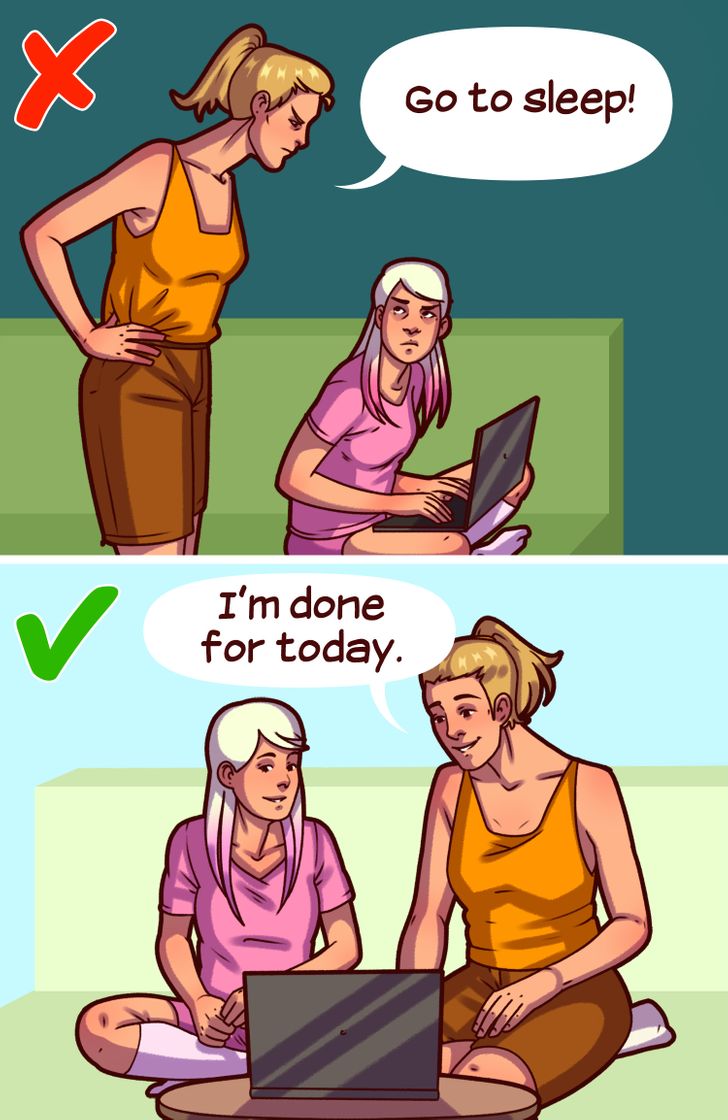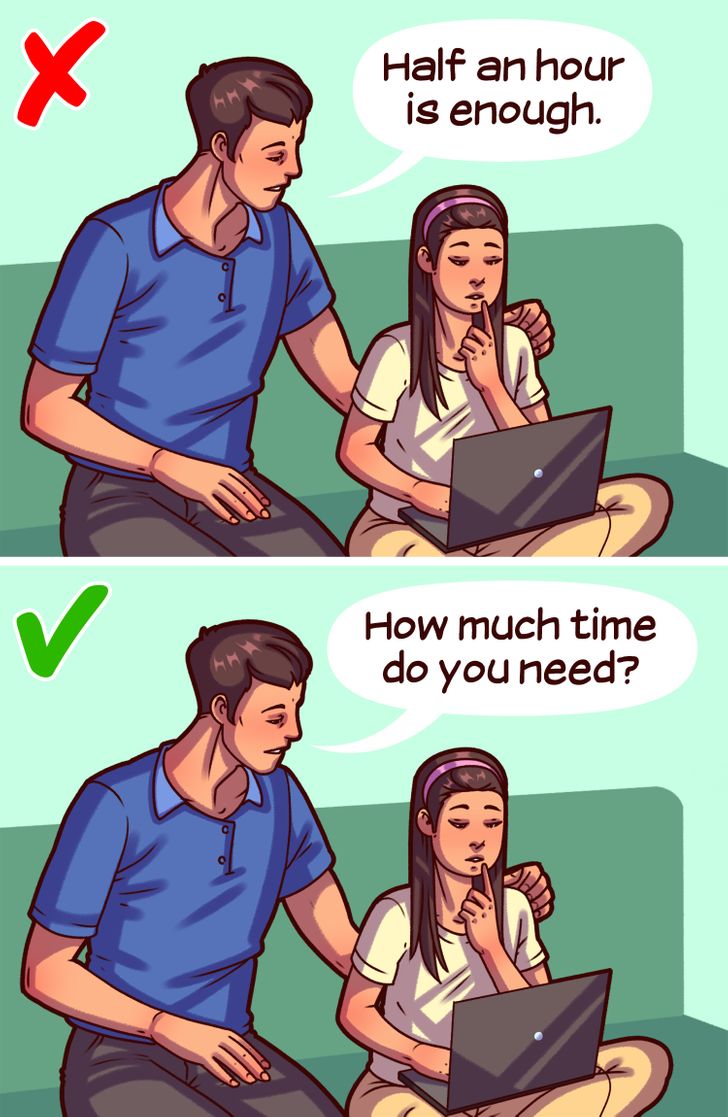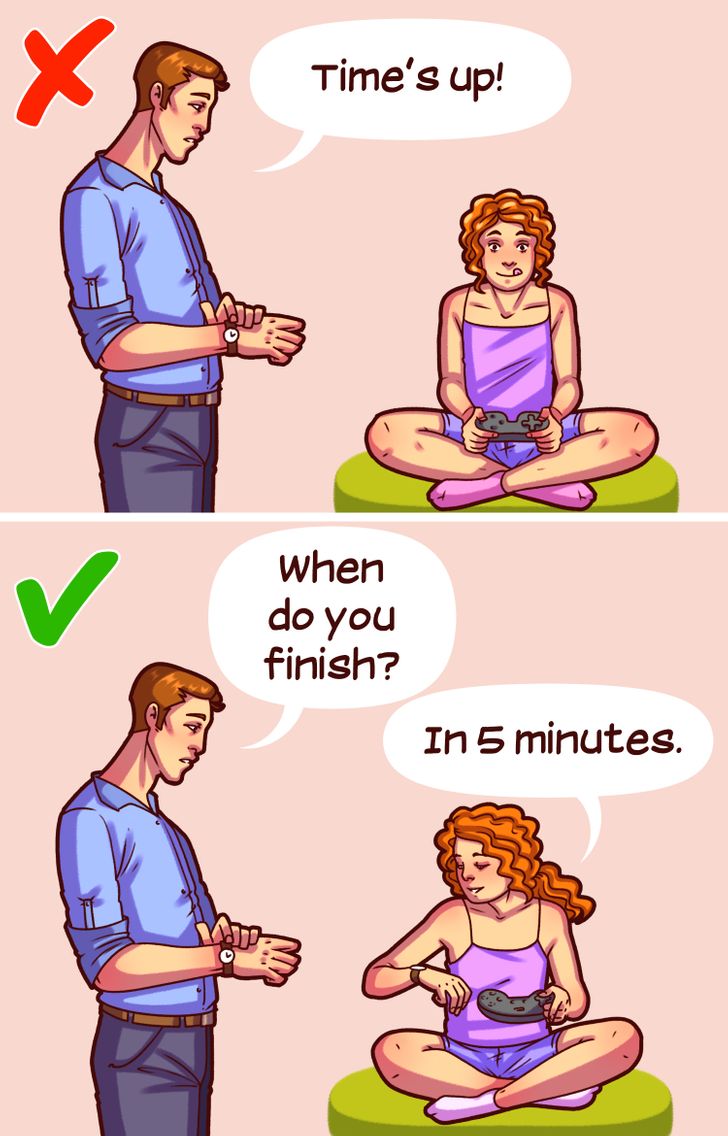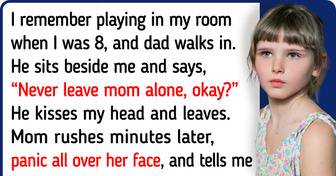If I talked to my kids this way, they would walk all over me. Kids need discipline too. They need to learn that they can't always have it their way, or they'll turn into self-entitled little brats, and then into selfish, unreliable adults.
A Psychologist Shares a Trick to Limit Your Child’s Screen Time Without Tears and Tantrums
According to a report, American teenagers use devices for 7 hours a day on average. And that’s not including time for homework or school. So it’s no surprise that lots of parents are concerned. And the fact that children get angry when moms and dads try to improve the situation makes matters even more difficult.
1. Allow your children to control their time and space themselves.

As Eyal mentions in his article, one of the biggest mistakes modern parents make is not allowing their children to control their own time. Only this way can they learn to avoid distractions and be in charge of their lives when they grow up.
2. Explain what they lose when they devote time to devices.

Even young children who attend kindergarten know that time is limited. Just explain to them that if they have 3 hours of leisure time and spend all of it playing games on their iPad, they won’t have time for painting, going out with friends, or enjoying a story before bed. Believe it or not, they can prioritize. Try not to fall victim to the bias that devices are evil. They only become that way if we don’t know how to control ourselves.
3. Show them that apps, videos, and games are made to keep consumers “hooked.”

If your kid likes to play games on a smartphone, tell them about the rewards they get on each level. If they like to watch TV shows, it’s worth mentioning the cliffhangers that appear at the end of each episode. The older ones are able to understand the function our hormones have that keep us addicted to things like this. It’s also good to show them how to manage screen time by example.
4. Ask them how much time they think is enough.

You may be afraid to hear that they’re going to use their precious devices all day. But this likely will never happen after you explain the necessity of restrictions. Avoid setting up limits yourself — it will just lead to bargaining with them and will kill the whole idea of independence.
5. Ask them how they’re going to manage their time limit.

If you’re the one keeping an eye on time restrictions, it can be a big mistake. If a kid sets up limits, they’re the ones who should enforce them. There are lots of ways to do this: set an alarm clock on a phone or ask Amazon’s Alexa to set up a timer — even little kids can use a kitchen timer. Remember that you’re just an advisor, not the bad guy who takes away something precious from your child.
6. Start from an early age.

As soon as your child starts to insist on using their iPad/smartphone/laptop and bursts into tantrums, it’s high time to act on it. Just make sure that everyone has calmed down before you start a discussion. If tantrums occur, it doesn’t mean that it’s too late to fix the problem — it never is.
7. Don’t carve the initial rules in stone.

First of all, this gives you the opportunity to raise a topic again if your kid breaks a promise. And on the other hand, it gives your kid freedom to trade daily screen time for a movie night on weekends or change the way they track time.
8. Be ready for heated discussions.

It’s great if you’re able to solve the problem without losses on each side. But keep in mind that your child may protest against new rules. Be ready for that and don’t get angry, punish them, or take control. Try to calm them down and promise to revisit the topic later. A good family atmosphere is always more important.
What strategies do you use to teach your kids to control their screen time?
Comments
I’m a kid, but I still agree with you
Related Reads
12 Holiday Stories With Wild Twists You Won’t See Coming

My MIL Secretly Insulted Me for Years, So I Recorded Her — My Husband’s Reaction Was Priceless

An Israeli Artist and His Wife Show Funny, Sweet Moments First-Time Parents Can Relate To

13 People Who Got Caught in Life’s Ironic Twists

12 People Who Discovered Dark Truths About Their Friends

12 Disturbing Events That Crushed People’s Spirits

12 Wild Stories That Prove Cheating Isn’t For the Faint-Hearted

15 Eerie True Events That Break Every Rule of Reason

16 Disturbing Wedding Stories That Quickly Ended the Relationships

My Husband Was Silent When His Mother Was Berating Me and Insulting Our Child

20 Coincidences That Can Become a Plot for a Bestseller

19 Houses and Apartments That Have More Secrets Than an Antique Casket
